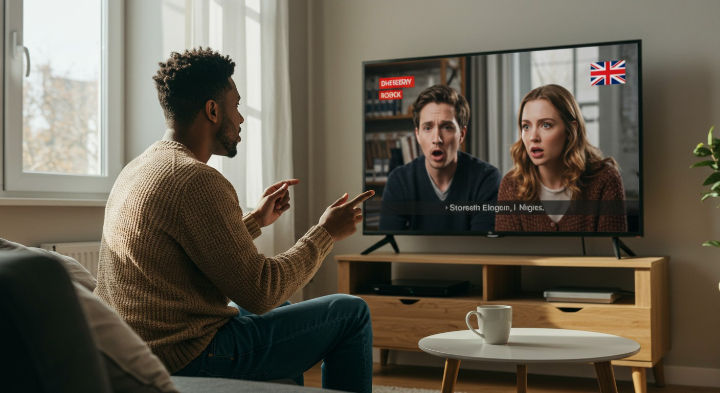Listen Actively Like a Detective: Unlocking English Fluency
- Jul 24, 2025
- 3 min read
Updated: Aug 4, 2025

The journey to English fluency can feel like a complex puzzle, but the most fundamental and often overlooked piece is active listening. It's not enough to simply hear English; you need to engage with it like a detective searching for crucial clues. This approach transforms passive exposure into a powerful learning tool, accelerating your comprehension and speaking abilities.
The Detective's Ear: What to Listen For
Think of yourself as a linguistic investigator. Every conversation, every podcast, every movie scene holds valuable information. Your mission is to uncover it by paying meticulous attention to:
Pronunciation: How do native speakers form sounds? Notice the subtle differences that can change the meaning of a word.
Rhythm of Speech: English has a natural flow. Identify stressed and unstressed syllables, and how words link together. This "music" of the language is key to sounding natural.
Pauses: Where do speakers naturally pause? These breaks often indicate shifts in thought or emphasize certain points.
Intonation: How does the pitch of their voice rise and fall? Intonation conveys emotion, clarifies meaning, and distinguishes between questions and statements.
By actively dissecting these elements, you're not just hearing words; you're deciphering the mechanics of native speech. This deep analysis trains your ear to recognize patterns, making it easier to understand and eventually replicate them.
Your Investigative Tools: Watch and Listen
Just as a detective uses various tools to gather evidence, you have powerful resources at your disposal to enhance your active listening skills.

Visual Clues: Movies and TV Series with English Subtitles
One of the most effective ways to train your detective's eye and ear simultaneously is by watching movies and TV series in English with English subtitles. This method offers a multi-sensory learning experience:
Lip and Tongue Movement: Observing how native speakers' mouths move as they speak provides invaluable visual cues. You can associate the physical act of articulation with the sounds you hear, strengthening your understanding of pronunciation.
Sound-to-Spelling Association: Subtitles allow you to connect the spoken word directly with its written form. This reinforces vocabulary, helps with spelling, and clarifies words that might sound similar but have different spellings and meanings.
Contextual Understanding: Visuals provide context that aids comprehension. When you see what's happening on screen, it becomes easier to understand the dialogue, even if you don't catch every single word. This contextual learning is crucial for building a more holistic understanding of the language.
Start with content you enjoy to keep motivation high. Don't be afraid to rewatch scenes or even entire episodes. Each viewing will likely reveal new details and deepen your understanding.

Auditory Immersion: Podcasts and Audiobooks
For pure auditory immersion, podcasts and audiobooks are unparalleled. They train your ear to process spoken English without the aid of visual cues, forcing you to rely solely on your listening comprehension.
Consistent Exposure: Podcasts and audiobooks are perfect for integrating English into your daily routine. Listen during your commute, while exercising, or during household chores.
Focus on the "Music" of the Language: Without visual distractions, you can truly focus on the rhythm, intonation, and natural flow of English. Try to identify stressed words and phrases, and notice how sentences are structured aurally.
Imitation Practice: A powerful active listening technique is to imitate short phrases or sentences you hear. Pause the audio and try to replicate the speaker's pronunciation, intonation, and rhythm as closely as possible. This "shadowing" practice directly improves your speaking fluency and accent.
Diverse Content: From news and educational talks to fictional stories and interviews, podcasts and audiobooks offer an endless array of topics. Choose subjects that genuinely interest you to maintain engagement.
Start with content designed for English learners, and gradually progress to native-level materials as your comprehension improves. Don't be discouraged if you don't understand everything initially; the goal is consistent exposure and active engagement.
🔖 Conclusion: Listen Actively
To truly master English, you must listen actively like a detective. This proactive approach goes beyond simply hearing words; it involves dissecting the nuances of native speech, using visual and auditory tools to uncover the hidden clues that unlock fluency. By diligently paying attention to pronunciation, rhythm, pauses, and intonation, and by leveraging resources like movies with subtitles and immersive audio, you'll not only understand more but also begin to speak with greater confidence and naturalness. Embrace your inner linguistic detective, and the secrets of English fluency will gradually reveal themselves. What new "clues" will you uncover in your next listening session?







Comments